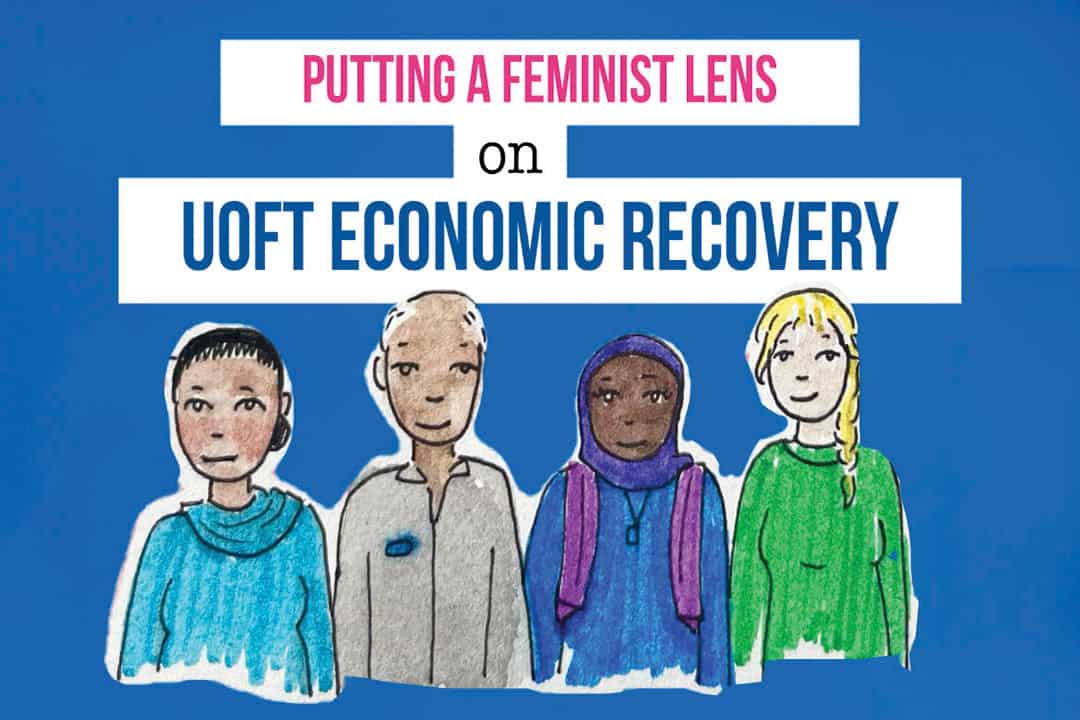We were stunned to see a large, and frankly offensive, sign hanging from a lamppost at Queen’s Park Circle East as part of the University of Toronto’s fundraising campaign. Superimposed on the image of a Black woman in a service uniform working at a kitchen counter are the words: “Putting a Feminist Lens on Economic Recovery.”
While putting a feminist lens on economic recovery is certainly a laudable and important goal, we suggest training that feminist lens on the outrageous working conditions of the workers in the most precarious conditions among us right here at the University of Toronto. Perhaps we should ask why — when the university brought in record-level profits during the COVID-19 pandemic — U of T was busy outsourcing and furloughing service staff? This is an action that disproportionately affected racialized women workers.
We know this because, during the pandemic, faculty and librarians across the three campuses of the University of Toronto worked with three labour groups to create a solidarity fund: UNITE HERE; United Steelworkers; and the Canadian Union of Public Employees, Local 3902.
Here is what UNITE HERE shared with us in 2020, as we learned about the conditions and experiences of subcontracted workers across the university: “As frontline workers in the hospitality and food service industries, nearly 8,000 UNITE HERE LOCAL 75 members and the families they support are among the first and hardest hit by the impact of the COVID-19 pandemic. This includes our food service members at UTSC.”
They went on to mention that “95% of our union members are laid off, leaving most of our members scrambling to find ways to support their families. During this difficult time, our members have identified difficulties in paying rent/utilities and in purchasing groceries as a result of financial difficulties brought on by COVID-19. While government support is appreciated, our members, who are majority women, immigrants, and people of colour will need more support so they can weather this storm.”
Let’s start by putting a feminist lens on economic recovery right here on our campuses. Otherwise, that poster reads to us as an attempt to profit from a display of diversity while undermining the ability of racialized workers at our own university to achieve economic recovery.
Kiran Mirchandani is a professor in the Department of Leadership, Higher and Adult Education. Alissa Trotz is a Women and Gender Studies and Caribbean Studies professor. Michelle Buckley is an associate professor in UTSC’s Department of Human Geography.


